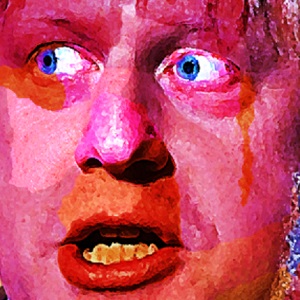Following our award for Politician of the Year (undead), here comes another newly instituted gong.
It’s been an impressive year for self-destructive politicians. The prime minister himself set the standard, arranging his own funeral in the shape of the Brexit referendum. Almost as convincing was Zac Goldsmith losing two elections in the space of seven months, apparently punished by the electorate for running too right-wing a campaign.
But both Cameron and Goldsmith are now finished in politics. And our award is intended for someone who’s still with us – but only just – suffering from self-inflicted wounds that may yet prove fatal.
Which means that there can only really be one winner: Baroness Chakrabarti of Kennington.
How far she has fallen! And it’s all been in this calendar year.
When the not-yet-ennobled Shami Chakrabarti CBE retired as director of Liberty in January this year, she was a renowned, respected, even – in some quarters – revered public figure. Newspapers marked the occasion of her stepping-down by dusting off old tributes from the likes of David Aaronovitch and Jon Gaunt: ‘probably the most effective public affairs lobbyist of the past twenty years,’ said the one; ‘the most dangerous woman in Britain,’ said the other.
She used to describe herself as the ‘human logo’ of Liberty, and she had enjoyed a much higher profile than any of her predecessors. Committed, telegenic, articulate, if a little humourless, she was particularly beloved of the BBC, becoming a regular presence on Question Time and the go-to person for any news stories involving infringements of human rights – a common enough occurrence in the modern world of terrorist panics.
Peak-Shami came in 2012 when she was one of eight people invited to carry the Olympic flag at the climax of the opening ceremony of the London Olympics, alongside the secretary-general of the United Nations, the Nobel Peace Prize winner Leymah Gbowee and pianist and conductor Daniel Barenboim.

And then in April this year, she threw it all away. She joined the Labour Party – despite the fact that her moral authority was rooted in her non-partisan status – at the same time that she was appointed to lead an enquiry into antisemitism in the party.
The report she produced in June cleared Labour of being ‘overrun’ by racism, but did admit there was an ‘occasionally toxic atmosphere’. Its findings were not universally welcomed: it was ‘a whitewash’, according to the Campaign Against Antisemitism, while Labour MP Ruth Smeeth left the press conference held to launch the report in tears, saying that ‘a Labour Party under [Jeremy Corbyn’s] stewardship cannot be a safe space for British Jews’.
Rumours circulated that Chakrabarti had been offered a peerage in return for her work on the enquiry, stories that she refused to deny. And in August she was indeed given a peerage, the only one bestowed by Corbyn this year. She is now in the shadow cabinet and is one of Corbyn’s few loyalists in the House of Lords.
Unsurprisingly, accepting a frontbench job has only done further damage to her reputation as an independent campaigner. Earlier this month, Peter Tatchell interrupted a Corbyn speech on human rights with a protest demanding sanctions against Russia for its actions in the Syrian civil war. Rather than being on the floor, shoulder-to-shoulder with Tatchell, Baroness Chakrabarti was up on the stage, whispering advice to Corbyn: ‘Just let them do this,’ was her suggestion for damage limitation.
And still the antisemitism claims won’t go away, despite her best endeavours. ‘I don’t believe Labour is much worse than any other party,’ she insisted in November, adding that allegations to the contrary were merely part of the campaign against her leader. It was hard to imagine the Shami of Liberty settling for ‘not much worse’ over doing far, far better. Has anti-racism suddenly become a relative value?
Most damaging of all, though, was the shadow attorney general’s silence when the ‘snooper’s charter’ came up for debate in the House of Lords. This was precisely the kind of issue that had been meat and drink to her; the very reason why we might want – indeed, need – her to be in the legislature. But party loyalty, it appears, trumps principle, and she kept schtum.
It’s been a disastrous twelve months for one of the keepers of the nation’s conscience. A lifetime of campaigning and conviction casually discarded, seemingly traded in for a mess of ermine. It gives us no pleasure at all to name Baroness Chakrabarti of Kennington as our Politician of the Year (decomposing).
Other award-winners this year:



When a person’s actions appear surprising, it is probably our expectations that were wrong. Most likely the actions and the person were quite consistent.
Chakrabarti’s off-the-cuff comments about the ‘authoritarian arms race’ together with the inaccuracies concerning the financial arrangements concerning private companies suggests that Chakrabarti feels very much at home in the shadow cabinet. She can say what she likes because she knows everyone agrees with her. Far from discarding her convictions, she finds herself surrounded by people who share those convictions. They also share her disinterest as to whether the majority of the electorate share those views on law and order. In that the current Labour shadow cabinet is very much like Liberty. There are other reasons why Chakrabarti feels so at home in the shadow cabinet. She can send her son to an elite private school while opposing grammar schools for being socially divisive. She can personally be wealthy while criticising the inequality in society.
The assumption to make, if one is to be made, is that Chakrabarti is where she always wanted to be: in the House of Lords and amongst a small but elevated metropolitan clique. The question to ask is why she wanted to be here. Was it the daughter of immigrants feeling herself to be an outsider and wanting to be accepted by the host society? Was this feeling enhanced by her parents’ embrace of Christianity being in conflict with the strong Islamic faith of their ethnic group? Ambition? Narcissism?
In many ways Chakrabarti’s ‘decomposition’ is extremely depressing. Cameron proved to be what he was always likely to be: a dilettante toff with a sense of entitlement and a dislike for hard battle. Corbyn likewise: the academically challenged middle-class grammar school boy, who couldn’t keep up with his more intelligent peers and so made a career out of sniping from the sidelines and avoiding taking responsibility for anything. Chakrabarti, however, has chosen that in two generations her family will have been transformed from humble immigrants to full members of the British Establishment. Along the way she has chosen to forget how crime blights the lives of people like her parents: the virulent racist abuse, the muggings and burglaries, the shop-lifting that disadvantages small businesses, the casual vandalism and other forms of anti-social behaviour. Of course, with her son at Dulwich College, Chakrabarti need not worry about the gangs and associated violence and criminality that lap at the gates of the state schools in the capital. She won’t have to interrupt her schedule to go into school because her son was attacked or threatened. Likewise she won’t be worried as to whether he has made his way home safely through a council estate after dark.
Questioning the prison population is not incompatible with expressing concern over levels of crime and violence. Around a sixth of the prison population is on remand. Only about 17% of those on remand return to prison after their trial. Then there are prisoners with mental health problems, prisoners who develop drug addictions while inside and prisoners who are willing to be educated and develop skills but who can’t do so due to budget constraints. Finally there is the cost of keeping each and every prisoner inside. There is probably a good argument to be made that it is in the interest of the law-abiding majority who pay for prisons through their taxes to reduce the prison population. The tragedy is that Chakrabarti has chosen not to take this argument to the general public – that being tough on crime need not mean prison – but instead to try to provoke the previous generation of Labour politicians into exposing just how wide the chasm is between the public and the current Labour leadership.
LikeLiked by 1 person